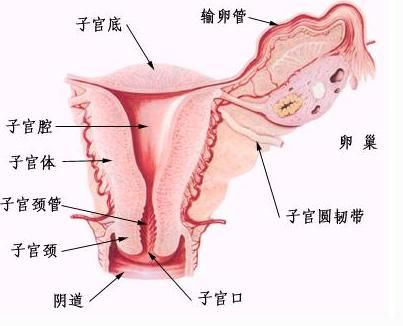On May 12, 2014, Fuda welcomed a patient from Shanghai, named Xu Xqiu, who was 70 years old. The patient suffered from colon cancer two years ago. However, misfortunes never come singly. She had been undergoing chemotherapy after surgery, but a review one year later found that the tumor had spread to the liver, lungs, spleen and abdominal and pelvic cavity. Immediately after chemotherapy, molecular targeted therapy came on stage. It was not until April 2014 that a follow-up CT scan revealed that the pelvic metastasis had gradually progressed, and it was unclear what kind of tumor it was. In order to seek further treatment, the patient and his family were recommended to our hospital for treatment.
In order to confirm the diagnosis, Xu Xqiu underwent a color ultrasound examination on the second day after being admitted to the hospital. The results showed a huge cystic-solid mass in the middle and lower abdominal cavity and pelvic cavity. However, the nature of the tumor was yet to be determined, and it was still unclear what kind of tumor it was. Professor Li Chaolong, a well-known veteran Chinese medicine doctor with 50 years of experience in hepatobiliary surgery, said after the ward rounds: "The patient's abdominal and pelvic tumors are cystic and solid, and ovarian metastases are considered. If the possibility of a second primary tumor is not excluded, surgical resection can be considered. I Come and do it." The old professor's words really gave everyone a reassurance. Because the patient was diagnosed and treated by Huashan Hospital Affiliated to Fudan University in Shanghai, local experts mostly considered it to be a metastatic tumor and rarely agreed that it was a second tumor. The operation started at 8:30 am on May 27, 2014. A laparotomy was performed first. Sure enough, the right ovary had grown to a size of 20.5*15.0*15.0cm, and the left tumor was also 8.0*6.0*4.0cm in size. Both ovaries and All the tumors were removed. Considering the multiple metastases in the abdominal cavity, the ileum, spleen and omentum were removed during the operation. After more than 4 hours of hard work, the operation was very successful, with only 200 ml of blood loss.
The pathological biopsy on May 30 showed that the lesions were consistent with bilateral ovarian serous cystadenocarcinoma.

Xu Xqiu’s successful treatment experience:
Xu Xqiu's ovarian cancer is the second tumor that occurs after colon cancer surgery. With his rich clinical experience, the old professor of Fuda Hospital quickly broke the possibility that Shanghai experts thought it was a metastasis and successfully removed the tumor completely. The secret to treatment lies in (1) large-scale collaborative surgery: Xu Xqiu’s tumor was not only in the ovary, but had also invaded the liver, lungs, spleen, omentum, and the entire abdominal cavity. During the surgery, experts from various disciplines worked together.
(2) Neoadjuvant treatment, including interventional and immunotherapy, was performed correctly after surgery.
Guangzhou Fuda Cancer Hospital has counted 26 cases of advanced ovarian cancer in the five years since 2002, of which 23 cases had received chemotherapy/radiotherapy or surgery. According to the maximum diameter, tumor size was 5 to 7 cm in 14 cases, 8 to 10 cm in 7 cases, and >10 cm in 2 cases. There were 3 cases with bilateral tumors. Histological data were available for 18 cases, including 13 cases of adenocarcinoma and 10 cases of undifferentiated carcinoma. Comprehensive treatment is adopted, including pelvic artery interventional chemotherapy-embolization, intraperitoneal hyperthermic chemotherapy, etc. 16 cases received cryotherapy, all of which were percutaneous cryotherapy. Three cases underwent surgical resection after cryopreservation. Results: Among the 16 patients who received comprehensive treatment including cryotherapy, 14 patients were followed up, and the follow-up period ranged from 8 to 52 months. The 1-, 2-, 3-, and 4-year survival rates were 95%, 87%, 64%, and 56%, respectively.
